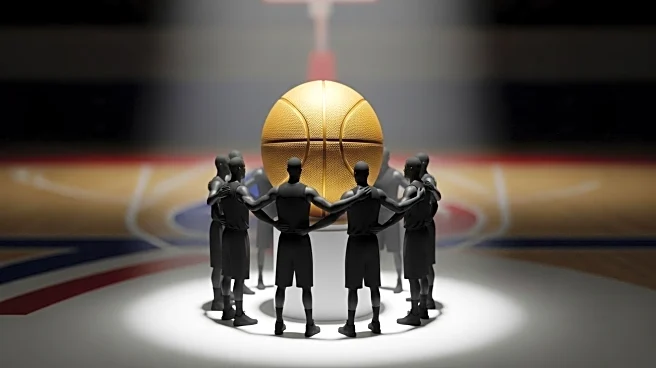What's Happening?
Jason Collins, known for being the NBA's first openly gay player, is currently undergoing treatment for a brain tumor. Collins, who retired in 2014 after a 13-year career, has been an ambassador for the league. His family has requested privacy as they focus on his health and well-being. Collins played for several teams, including the New Jersey Nets, Memphis, Minnesota, Atlanta, Boston, Washington, and Brooklyn Nets. He made history in 2013 by publicly announcing he was gay, becoming the first openly gay athlete in the major North American sports leagues. The Brooklyn Nets have expressed their support for Collins and his family during this challenging time.
Why It's Important?
Collins' situation highlights the ongoing health challenges faced by athletes even after retirement. His role as a trailblazer for LGBTQ+ representation in sports underscores the importance of inclusivity and support within the sports community. The NBA's response and the support from teams like the Brooklyn Nets reflect the league's commitment to its players' well-being beyond their professional careers. This event may also raise awareness about brain health and the need for medical support for athletes, potentially influencing public health policies and support systems for retired sports professionals.
What's Next?
As Collins undergoes treatment, the NBA community and fans are likely to continue offering support and solidarity. The situation may prompt discussions on healthcare provisions for retired athletes, particularly those who have contributed significantly to the sport's inclusivity and diversity. The league and its teams might explore initiatives to support Collins and others facing similar health challenges, potentially leading to increased advocacy for athlete health and wellness programs.
Beyond the Headlines
Collins' journey as the first openly gay player in the NBA has been pivotal in promoting diversity and acceptance in sports. His current health battle may further highlight the need for comprehensive healthcare and support systems for athletes, especially those who have been influential in breaking barriers. This situation could inspire broader conversations about the intersection of health, identity, and sports, encouraging more inclusive practices and policies within the industry.










